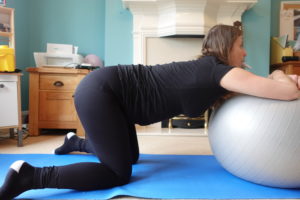Incontinence
During Pregancy
Pregnancy is a huge change for your body, as big as the one occurring during teenage but occurring in just 9 months.
Hormonal level reaches the sky, making muscles and ligament hyper flexible and weak. It is why you are prone to sprain, pain… But it also modifies the position of your organs and especially for the bladder, uterus and rectum.
For example, your bladder, already lower by the growing uterus resting on it, lower even more as its ligaments become loose due to hormonal changes.
This position change is not without consequences. The angle between your urethra and bladder diminish, reducing the resistance to passing water and leading to incontinence.
Furthermore, pelvic muscles carrying all these organs also help to close the urethra but as the rest of your muscles they become loose and weak as pregnancy progress.
Finally, each increase of pressure inside of your abdomen (cough, sneeze, laugh, lifting, crunches, sit up…) will push on the bladder leaking urine out of the bladder in the urethra. As pelvis muscles are weaker (50%), they won’t be able to manage this push, causing incontinence.
Treatments
Don’t hesitate to have a look at our blog to learn more about the other type of incontinence:
What type of incontinence do you have?
Or check out our video to manage urgency!



